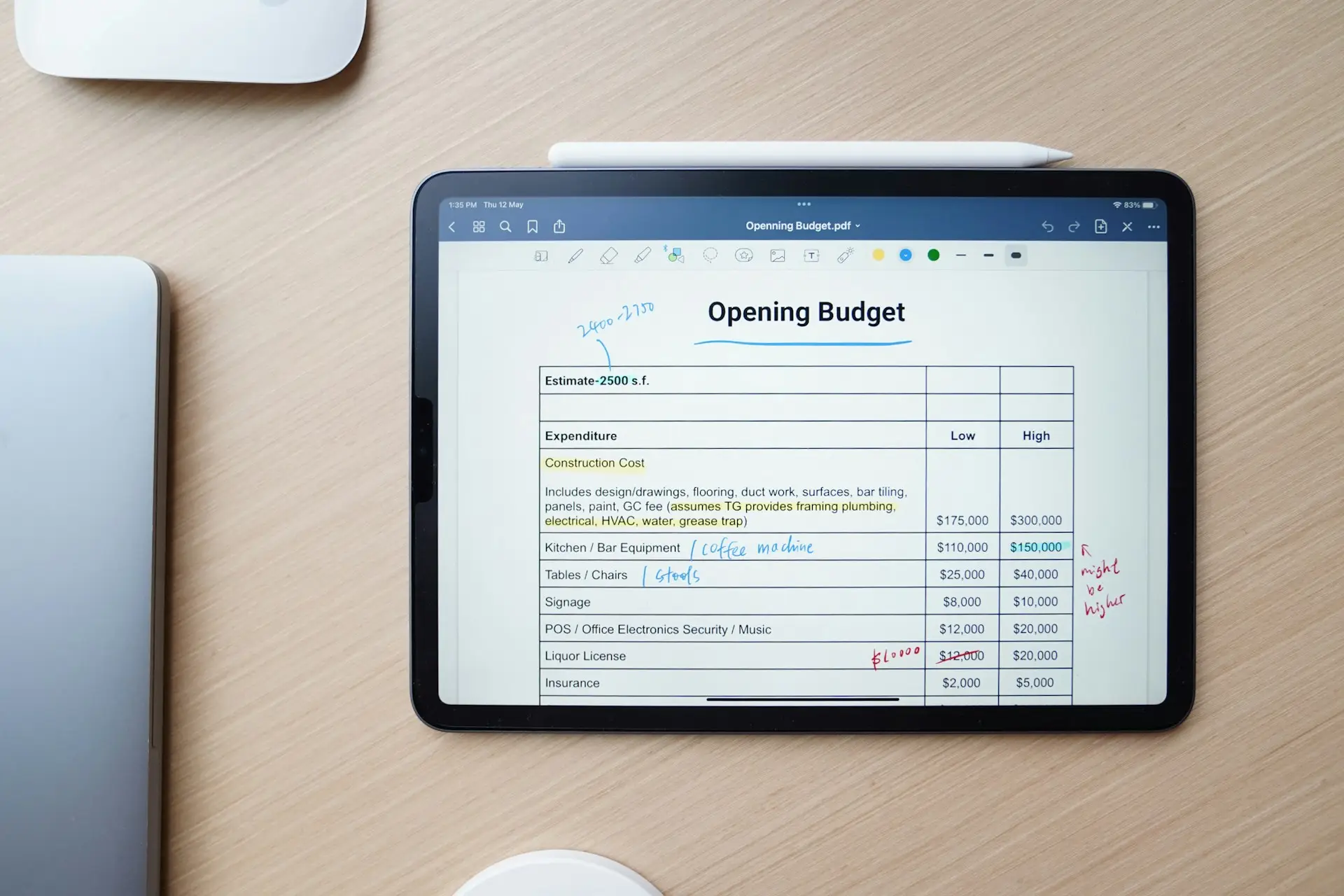Managing your money in 2025 means more than scribbling numbers into notebooks or toggling spreadsheets. The top budgeting apps offer automated tracking, bank syncing, goal setting, and even AI-powered insights for optimizing your finances. But which is best for you—and how do the leading apps compare?
In this guide, we break down the best budgeting apps of 2025, detail what sets each apart, and help you choose based on your needs, preferences, and habits. Let’s dive in!
Why Use a Budgeting App in 2025?
With inflation still high, subscription services everywhere, and new ways to earn and spend, budgeting apps are essential for:
- Tracking all expenses (no more surprises!)
- Setting—and sticking to—financial goals
- Reducing impulse spending
- Receiving real-time alerts and insights
- Connecting all accounts (banking, credit cards, investments, crypto)
But which one will actually help you save money, drive financial growth, and fit your lifestyle? Here’s the breakdown of 2025’s top contenders.
Comparing the Top Budgeting Apps of 2025
We thoroughly searched the internet for expert reviews, user ratings, and up-to-date feature lists. Here are the apps that stood out in 2025:
- YNAB (You Need a Budget)
- Monarch Money
- EveryDollar
- PocketGuard
- Goodbudget
- Empower Personal Dashboard
- Rocket Money
- Fina
- Albert
- Honeydue
Let’s look at each one.
1. YNAB (You Need A Budget)
Best for: Zero-based budgeting, hands-on budgeters
Platforms: Web, iOS, Android
Pricing: $14.99/month or $99/year (free 34-day trial)
Security: Bank-level encryption, no selling of data
Features:
- Assigns “every dollar a job,” so not a cent is wasted
- Teaches proactive budgeting through workshops and tutorials
- Real-time account syncing (all major banks supported)
- Goal tracking, customizable categories, and detailed reports
- Excellent community support (forums, resources, live Q&A)
Pros:
- Ideal for detail-oriented users wanting complete control
- Drives real savings—users report saving an average $600 within the first two months
- Outstanding educational resources
Cons:
- Steep learning curve for beginners
- Manual entry can be time-consuming if you don’t sync accounts
- Slightly pricey compared to basics-only apps
Ideal user: Anyone serious about mastering their money and changing financial habits for good.
2. Monarch Money
Best for: All-in-one dashboard, couple/household budgeting
Platforms: Web, iOS, Android
Pricing: $14.99/month or $99.99/year (free 7-day trial)
Security: 256-bit TLS, never sells data
Features:
- Sync all bank, credit, loan, and investment accounts
- Choose “flex” for high-level budgeting, or “category” for detailed tracking
- Advanced net worth, investment dashboard, and bill reminders
- Collaboration tools: add spouse or partner for shared management
- See real-time spending, set savings/investment goals, and generate reports
Pros:
- Superb interface—modern, straightforward, easy to learn
- Exceptional for managing household finances with shared goals
- Offers both high-level and granular views
Cons:
- Expensive compared to some competitors, but very robust
- May be too feature-rich if you want a minimal/quick tool
Ideal user: Households, couples, and anyone wanting all-in-one financial oversight.
3. EveryDollar
Best for: Simple budgets, beginners, Dave Ramsey fans
Platforms: Web, iOS, Android
Pricing: Free basic, $79.99/year Premium (with bank syncing)
Security: Standard encryption, respects privacy
Features:
- Zero-based budgeting (allocate every dollar)
- Guided monthly budget creation
- Split transactions, expense tracking, recurring bills
- Premium = bank syncing, automatic expense import
Pros:
- Easy for beginners, no-frills approach
- Quick sign-up and budget setup
- The free version works for most people
Cons:
- Automatic syncing is only available in the paid version
- Less reporting analytics than power-user apps
Ideal user: Anyone new to budgeting or seeking straightforward money management.
4. PocketGuard
Best for: Snapshot budgeting, users who want hands-off tracking
Platforms: iOS, Android, Web
Pricing: Free basic, $12.99/month Premium
Security: Bank-grade security, trustworthy reputation
Features:
- Links all accounts for real-time expense and income tracking
- “In My Pocket” feature shows cash available after bills/goals
- Subscription tracker helps cancel unwanted charges
- Net worth tracker (premium)
Pros:
- Clean UI with simple graphs
- Great for people who want minimal effort
- Excellent for spotting spending leaks
Cons:
- Not as hands-on or customizable as power budget apps
- Premium unlocks must-have features for serious users
Ideal user: Anyone wanting to watch spending passively and avoid budget overwhelm.
5. Goodbudget
Best for: Envelope budgeting, family/couple sharing
Platforms: Web, iOS, Android
Pricing: Free basic, $8/month or $70/year Plus
Security: Bank-level data protection
Features:
- Digital envelope system—allocate funds to spending categories
- Sync and share budgets across devices (ideal for families)
- Goal and expense tracking, reports on spending patterns
Pros:
- Great for teaching kids or running household budgets together
- Envelope system visualizes spending in categories
- The free version suits basic users
Cons:
- Manual transaction entry—no automatic bank syncing in the free version
- Lacks investment/net worth tracking
Ideal user: Families, couples, or anyone preferring classic envelope budgeting.
6. Empower Personal Dashboard
Best for: Total financial oversight and investments
Platforms: Web, iOS, Android
Pricing: Free for budgeting/tracking, paid investment management services
Security: 256-bit encryption, secure two-factor authentication
Features:
- Account sync (bank, credit, loans, investments, retirement)
- Spend tracking, customizable budgets, cash-flow analytics
- Retirement planner, investment performance reports
Pros:
- Robust for tracking ALL finances, including investment growth
- Powerful analytics—net worth, retirement, and future planning
- Free budgeting makes it accessible
Cons:
- Best for those with investments (less focused on everyday budget hacks)
- Paid features skew toward wealth management
Ideal user: Anyone wanting a detailed dashboard for debt, spending, and investments.
7. Rocket Money (formerly Truebill)
Best for: Subscription tracking & bill management
Platforms: iOS, Android, Web
Pricing: Free basic, premium $3–$12/month
Security: SOC2 compliance, robust encryption
Features:
- AI identifies and cancels unwanted subscriptions and recurring bills
- Expense categorization, budget goals, and spending alerts
- Bill negotiation service (optional premium add-on)
Pros:
- Superb for cleaning up recurring expenses
- Bill negotiation can save $300+/year for some users
- Saves time and reduces “subscription creep”
Cons:
- Fewer traditional budgeting features than YNAB/Monarch
- Some features require an upgrade
Ideal user: Busy professionals or anyone with lots of subs and bill anxiety.
8. Fina
Best for: Fast, simple, all-encompassing tracking
Platforms: Web, iOS, Android
Pricing: Free or low cost (see Fina website)
Security: Standard encryption
Features:
- Automatic bank syncing, expense, and investment tracking
- Customizable expense categories, charts, and spending goals
- Strong new AI features for personalized budget suggestions
Pros:
- Simple onboarding
- Integrates all finances, including crypto
- Freemium options make it accessible
Cons:
- Less robust analytics than super-premium apps
- Newer—some features still being expanded
Ideal user: Tech-savvy users who want fast setup and easy use.
9. Albert
Best for: Automatic saving, “genius” tips and recommendations
Platforms: iOS, Android
Pricing: Free for budgeting, $4+/month for premium
Security: 128-bit SSL, strong privacy
Features:
- Automated “Smart Savings” moves spare cash to savings goals
- Connects bank/credit accounts for tracking
- Send texts with real-time tips to improve spending
Pros:
- Excellent for hands-off savers
- Motivational advice via push notifications
- Free valuable version for many
Cons:
- Less category/cash flow control than the leader apps
- Paid features add most value
Ideal user: Anyone who wants saving and tracking to be automatic.
10. Honeydue
Best for: Couples and shared finances
Platforms: iOS, Android
Pricing: Free
Security: Trusted encryption
Features:
- Couples link accounts, share transactions, and communicate budget goals
- Category tracking, bill reminders, and expense splitting features
- “Chat” features for in-app messaging
Pros:
- Purpose-built for couples—makes shared expenses transparent
- Free to use
- Easy learning curve
Cons:
- Not ideal for solo users
- Lacks advanced reporting, investments, and savings growth tools
Ideal user: Couples wanting to avoid money miscommunication.
Feature Comparison Table
| App | Price | Bank Sync | Zero-Based | Envelope | Investment | Subscription Tracking | Best For |
| YNAB | $99/yr | Yes | Yes | No | No | No | Proactive budgeting |
| Monarch Money | $99/yr | Yes | Optional | No | Yes | No | All-in-one, couples |
| EveryDollar | Free/$79 | Premium | Yes | No | No | No | Beginners |
| PocketGuard | $74/yr | Yes | Yes | No | Yes | Yes | Hands-off, snapshot |
| Goodbudget | Free/$70 | Manual | No | Yes | No | No | Families, envelope fans |
| Empower | Free | Yes | No | No | Yes | No | Investments & tracking |
| Rocket Money | Free/$4 | Yes | No | No | No | Yes | Subscription mgmt |
| Fina | Free | Yes | Optional | No | Yes | Yes | Simplified tracking |
| Albert | Free/$4 | Yes | No | No | No | No | Automatic saving |
| Honeydue | Free | Yes | No | No | No | No | Couples, shared expenses |
Here’s What You Need To Remember When Choosing a Budgeting App:
- Budgeting Style: Do you prefer hands-on zero-based budgeting, passive tracking, or envelope-style budgeting?
- Sync & Automation: Is automatic syncing with your banks, cards, and investments a must-have, or do you prefer manual control?
- Goals and Analytics: Need robust savings/investment dashboards and detailed reports, or is simplicity enough?
- Privacy & Security: Only use reputable apps with encryption and clear privacy policies.
- Collaboration: Budget solo or with a partner/family? Opt for robust sharing features if you collaborate.
- Subscriptions vs. Free: Is a premium subscription worth deeper insights/automation, or will a free/basic app suffice?
Best Apps by User Type—Quick Picks
- Zero-based budgeters: YNAB, EveryDollar
- Families/couples: Monarch Money, Goodbudget, Honeydue
- Passive budgeters: PocketGuard, Fina, Albert
- Subscription control: Rocket Money
- Investment tracking: Monarch Money, Empower, Fina
- Free options for basic needs: EveryDollar Basic, Goodbudget Free, Honeydue
Final Thoughts: The Future of Budgeting Apps
Budgeting is all about empowerment, clarity, and peace of mind. The Best Budgeting Apps of 2025 combine automation, powerful insights, collaboration features, and advanced security to help anyone take control of their money.
Whether you need hands-on control or set-it-and-forget-it savings, there’s a perfect app for you. Try out the leading options, track your financial goals, and build new habits—the future of personal finance is in your hands!
Ready to get started?
Download your top-picked app, set your financial goals, and see how much easier money management can be in 2025.
Leave a comment if you want more insights, comparison reviews, or budgeting tutorials for your unique needs!




